assumed I hallucinated the whole thing. I sat listening to an account of a woman, married about two years, someone I know. Suffering from weight issues and multiple failed attempts to lose body fat, she adopted an Intuitive Eating plan, popularized by writer Kelsey Miller. To my acquaintance, eating intuitively meant cookies with a large Frappuccino for breakfast, pizza for lunch and a nice dinner with wine, and on several nights per week, her intuition provoked a need for several beers at a local bar before retiring to bed.
As the chronicle of photos of the founder of the Anti-Diet movement demonstrate, she gained massive amounts of body fat as did my acquaintance. I saw snapshots of this transformation first hand. Despite increasing amounts of chronic pain, an inability to spend time outdoors and an ever growing chasm between her husband and several close friends, she claimed she felt empowered and happy because she no longer worried about food or her spiraling body weight. She was finally free to be healthy, both physically and emotionally, at any weight.
None of this surprised me. These attitudes and denials, I expected. I even expected her development of facial hair and other problems associated with shifting sex hormones that occur when people cross a certain threshold of body fat. I wasn’t even surprised when she had trouble attempting to bear children. Volumes of documentation exist which confirm this standard as one progresses into the stratosphere of morbid obesity. We use the term “morbid” because at a certain point, several diseases go from probable to certain.
What I thought I imagined was the rage she displayed after visiting her doctor about her difficulty becoming pregnant. The doctor had explained to her that her hormonal imbalances caused by her obesity and her pre-diabetes shared the blame. The solution: lose weight. As she told the story, the seething behind her eyes seemed palpable, but I had to be imaging it, right? She had a problem, her doctor presented a solution and a rational decision followed: lose weight to become healthy enough to bear children or don’t. No one foisted anything unreasonable upon her. The burden was hers alone to accept or reject.
What I saw was real. She was livid. Her Facebook began filling up with vitriolic messages about the audacity of her doctor to suggest she lose weight. The doctor (a woman) should respect her obesi-health and provide fertility drugs. Who was she anyway to use her thin-privilege to suggest that morbid obesity is, well, in a nutshell, morbid?
This became a recurring theme in her social media posts, this thin privilege, and represents my first exposure to the term. She went on an active campaign of shaming her friends every time they posted pictures of themselves at events or in nature and unleashed a near libelous deluge of insults when they posted about their workouts. Luckily, I only had to deal with this campaign of thin-shaming at a distance. And years later, she’s still at it (and still blames her doctor for her inability to have children, describing the doctor, at one point, as an Anti-Fat Nazi).
I hadn’t thought much about it until recently after the BBC released a video of a super-obese woman (which is a level beyond morbid obesity), explaining thin privilege. The woman complained that thin people get to eat donuts without people staring. Following this thread leads to a plethora of thin-shaming, a weird attempt at some type of social justice. Though I normally shy away from expletives, even within my inner monologues, I couldn’t help but think, WHAT – THE – FUCK? There’s a word in Urban Dictionary to describe such polemic attempts by the obese to shame thin people while explaining that the “morbid” in “morbid obesity” somehow means “imaginary health”: Fatsplaining.
When did hard work, dedication and perseverance become something worth shaming? The vast majority of lean, healthy people commit a lot of fortitude and tenacity toward achieving their goals. And an even greater number of people work even harder to become lean and healthy. Why would anyone shame this? Where is the justice in doing so? Did someone walk up and smack the donut from the super-obese fatsplainer’s hand while saying, “You don’t need that!” No. In the fatsplaining video, no one paid her any mind as she enjoyed the oversized, icing encrusted donut in the midday sun. So why be angry at the people who didn’t buy a donut?
Believe it or not, I’ve expended a lot of thought on these issues. The underlying context here is crucial. No one defends the horrid trend in secondary school today when students from low socioeconomic groups shame their peers for studying and achieving high grades. This phenomenon — shaming hard work and dedication — has led directly to falling rates of minority enrollment in college. Would fatsplainers jump to the cause of those who want to bring others down simply to justify their own apathy towards academics? I doubt it.
I’m not denigrating the plight of those with weight issues. I sympathize. Our society, with its myopic focus on weight loss, caused these issues by enforcing the use of programs that make people more sick when they do lose weight. The result: the weight loss is physiologically impossible to maintain and they gain more weight after ceasing the diet. The acquaintance of whom I spoke above experienced her greatest fat loss while on a strict vegan diet while running half marathons. But her health broke down and she had to quit the program. Afterwards, she experienced the most rapid weight gain of her life, ending up in a state of compromised health where getting lean became impossible with using the standard methods of calories-in-calories-out.
We have, as a society, left these people behind. We should all feel some level of guilt for this. It’s a complex problem. Solutions do exist, but thin-shaming and fatsplaining is nowhere in the rubric of progress; neither is fat-shaming. Desperation, despondency and defeat beget thin-shaming and fatsplaining. In no other context does “giving up” represent a virtue. But it does when we discuss the obesity issue.
My incessant harping on the lack of scientific rigor in the field of health, fat loss and athletic performance and my tenacious struggle to develop one stems from true compassion. I believe it’s a human right to live as one wishes, whether diseased and obese or healthy and lean. As a corollary, however, it is society’s responsibility — our collective responsibility — to develop a mature science that achieves health in an easy and accessible manner, a method independent and outside of medicalized healthcare.
In this, I include the responsibility to our athletes as well who are normally lean, but the diet and training that produces high-level performance often damages their body and once they leave the limelight, no one cares what happens to them, as many battle weight issues indefinitely, especially of they abandon athletic pursuits.
We cannot continue on this path and we absolutely cannot give in to cries of kindness to defend the acceptance of skyrocketing rates of obesity. Is it kind to relegate a person to debilitating disease, chronic pain and an early death?
The battle to develop and spread a working science of health with unmitigated tenacity is the real challenge we all face in this still nascent century. Fatsplaining as a proxy for the acceptance and celebration of giving up and thereby subjecting people to harrowing disease is not an option. Kindness does not mean ignoring the problem. True kindness stems from a willingness to listen, the integrity to be honest, the courage to spurn social pressure and the compassion to never give up on helping people escape from debilitating morbidity.
It’s time we all display the bravery inherent in being kind.





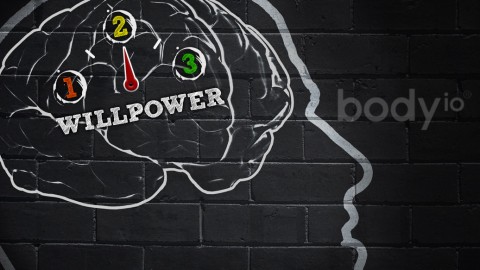
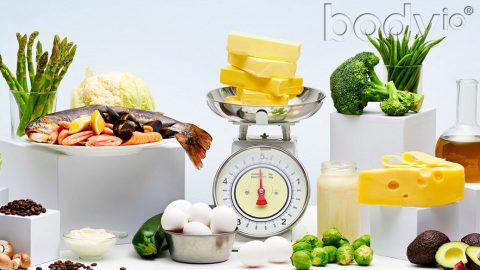
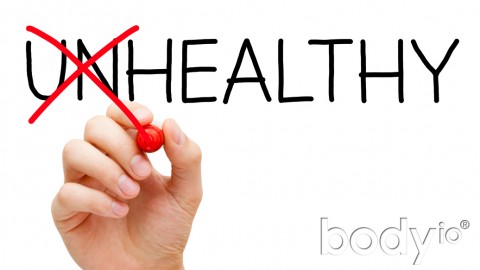

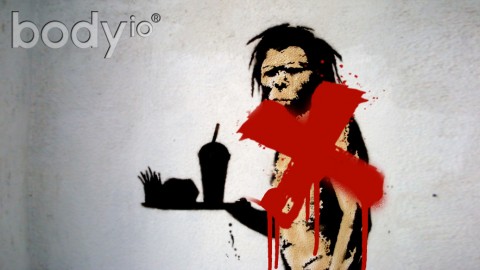
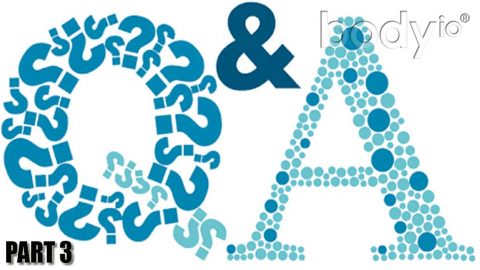

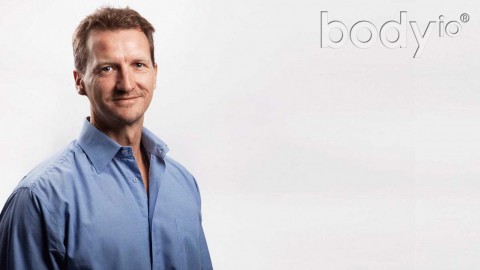
3progeny
2doctors
dissertation writing tutor https://professionaldissertationwriting.org/
dissertation proposal writing https://professionaldissertationwriting.com/
cheap dissertation help https://helpwithdissertationwritinglondon.com/
how long is a doctoral dissertation https://dissertationwritingcenter.com/
help with my dissertation https://dissertationhelpexpert.com/
phd dissertation peer reviewing help https://accountingdissertationhelp.com/
average dissertation length https://examplesofdissertation.com/
uga dissertation https://writing-a-dissertation.net/
tips for writing a dissertation https://bestdissertationwritingservice.net/
dissertation data analysis help https://businessdissertationhelp.com/
uk dissertation writing help quotes https://customdissertationwritinghelp.com/
dissertation help services https://writingadissertationproposal.com/
tips for writing a dissertation https://dissertationhelpspecialist.com/
cheap dissertation writing https://dissertationhelperhub.com/
define dissertation https://customthesiswritingservices.com/
online casino echeck https://download-casino-slots.com/
casino games online free play https://firstonlinecasino.org/
online casino no deposit sign up bonus https://onlinecasinofortunes.com/
online casino no deposit bonus https://newlasvegascasinos.com/
goldennugget casino online https://trust-online-casino.com/
golden nugget online casino promo https://onlinecasinosdirectory.org/
new vegas online casino https://9lineslotscasino.com/
casino online real money usa https://free-online-casinos.net/
swedish online casino https://internet-casinos-online.net/
casino streaming online https://cybertimeonlinecasino.com/
casino live online https://1freeslotscasino.com/
instant withdrawal online casino usa 2021 https://vrgamescasino.com/
harrahs casino online https://casino-online-roulette.com/
vegas casino online no deposit bonus 2021 https://casino-online-jackpot.com/
iowa online casino https://onlineplayerscasino.com/
casino games online free https://ownonlinecasino.com/
hallmark online casino https://all-online-casino-games.com/
online casino software providers https://casino8online.com/
free vpn into china https://freevpnconnection.com/
where to buy vpn https://shiva-vpn.com/
firestick vpn free https://freehostingvpn.com/
best vpn providers https://ippowervpn.net/
should i buy a vpn https://imfreevpn.net/
best free vpn app https://superfreevpn.net/
best free vpn for tor https://free-vpn-proxy.com/
vpn buy https://rsvpnorthvalley.com/
gree gay dating sites https://gay-singles-dating.com/
free gay dating site’s https://gayedating.com/
gay black dating apps https://datinggayservices.com/
dating single online https://freephotodating.com/
farmersonly https://onlinedatingbabes.com/
free singles dating search https://adult-singles-online-dating.com/
game online woman https://adult-classifieds-online-dating.com/
best online dating and chatrooms travel https://online-internet-dating.net/
dating women online https://speedatingwebsites.com/
free chat https://datingpersonalsonline.com/
european dating site uk https://wowdatingsites.com/
single seniors dating sites https://lavaonlinedating.com/
dating sites without email https://freeadultdatingpasses.com/
single free dating sites for sex https://virtual-online-dating-service.com/
dating site asian https://zonlinedating.com/
free dating services https://onlinedatingservicesecrets.com/
casino online bonus no deposit https://onlinecasinos4me.com/
ocean resort casino online https://online2casino.com/
online casino florida https://casinosonlinex.com/
free live gay webcam chat rooms https://newgaychat.com/
chat gay las vegas https://gaychatcams.net/
gay mature men chat group https://gaychatspots.com/
gay phone chat lines with free trials https://gay-live-chat.net/
profile tube boys user gay chat boi https://chatcongays.com/
gay latin chat https://gayphillychat.com/
gay chat roullette https://gaychatnorules.com/
gay chat https://gaymusclechatrooms.com/
free gay bi chat lines in seattle wa https://free-gay-sex-chat.com/
free gay chat avenue #1 https://gayinteracialchat.com/
free gay chat rooms by zip code https://gaymanchatrooms.com/
do my paper for money https://term-paper-help.org/
pay for a paper https://sociologypapershelp.com/
college paper writing service reviews https://uktermpaperwriters.com/
write my philosophy paper https://paperwritinghq.com/
paper writers online https://writepapersformoney.com/
where to buy writing paper https://write-my-paper-for-me.org/
pay to do paper https://doyourpapersonline.com/
buy psychology papers https://top100custompapernapkins.com/
help writing a paper https://researchpaperswriting.org/
writer paper https://cheapcustompaper.org/
pay for someone to write your paper https://writingpaperservice.net/
buy college paper https://buyessaypaperz.com/
best online paper writing service https://mypaperwritinghelp.com/
college papers writing service https://essaybuypaper.com/
paper writing service superiorpapers https://papercranewritingservices.com/
i will pay you to write my paper https://premiumpapershelp.com/
buy literature review paper https://ypaywallpapers.com/
3invention
coursework help uk https://brainycoursework.com/
buy coursework online https://courseworkninja.com/
coursework planner https://writingacoursework.com/
online coursework https://mycourseworkhelp.net/
coursework sample https://courseworkdownloads.com/
do my coursework online https://courseworkinfotest.com/
coursework help https://coursework-expert.com/
coursework resources https://teachingcoursework.com/
coursework online https://buycoursework.org/
do my coursework https://courseworkdomau.com/
adilt dating https://freewebdating.net/
facebook dating app https://jewish-dating-online.net/
tender dating site https://jewish-dating-online.net/
dating sites absolutely free https://free-dating-sites-free-personals.com/
plenty of fish sign in https://sexanddatingonline.com/
free site https://onlinedatingsurvey.com/
dating sites free no registration https://onlinedatingsuccessguide.com/
asien dating online https://onlinedatinghunks.com/
meet women for free online https://datingwebsiteshopper.com/
100% free dating site in europe https://allaboutdatingsites.com/
free on chatting https://freedatinglive.com/
plentyoffish free online dating site https://freewebdating.net/